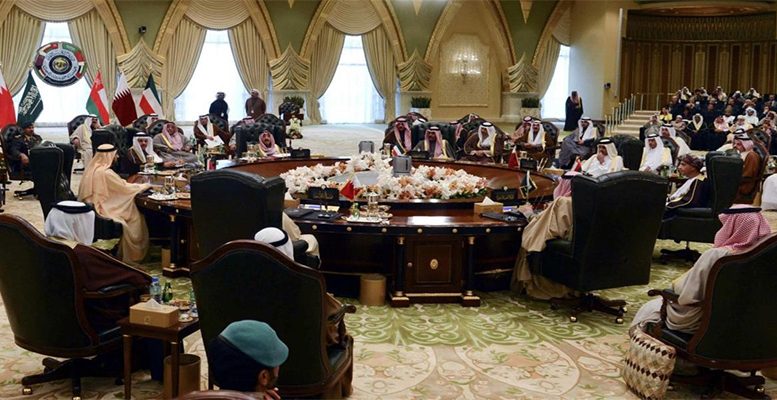*This article was originally published by Fair Observer
Gary Grappo | Barely two weeks after Saudi Arabia provided the dazzling stage for the great gathering of Arab and Muslim nations to come together for a new American president to announce a re-centering of US policy in the Middle East, the core group of Gulf nations, the Gulf Cooperation Council (GCC), is unravelling. Fake news may be the proximate culprit, but real divisions run deep.
On June 5, Saudi Arabia, Bahrain, the United Arab Emirates, Egypt, Yemen and even the Indian Ocean state of the Maldives took drastic measures to sever ties with Qatar, the mega-gas-exporting Gulf mini-state. The ostensible reason is allegedly untoward remarks attributed to Qatar’s Emir Sheikh Tamim bin Hamad al-Thani, including asserting support for Saudi arch-enemy Iran, for Hamas (and bizarrely Israel — go figure) and for Hezbollah, and claiming US President Donald Trump may not last a full four-year term.
For its part, Doha has denied the statements, declaring its website was hacked. Nevertheless, the claimed remarks served as more than adequate justification for the Saudis and Emiratis, emboldened by re-invigorated American support, to go after the Qataris for a laundry list of long-outstanding claims, especially closeness to Tehran and support for the reviled Muslim Brotherhood.
While not the first time the GCC states have experienced a falling out — the last was in 2014 but was patched up after quiet talks — this may prove to be longer lasting unless the Qataris knuckle under. Moreover, this dispute has received much wider public attention, with respective governments appealing to a broad range of regional and Western media to make their grievances known. Such a public display of the quarrel is uncharacteristic for the subdued Gulf state monarchies and suggests backing down is not an option for them, least of all Saudi Arabia and the UAE.
Moreover, the Saudis, Emiratis and Egyptians doubtlessly feel that with American backing, they can act forcefully to bring Qatar under Riyadh’s control. That seems clear by the media splash, and it places the ruling al-Thani family in an impossible situation. Resignation would impact Doha’s decades-long strategy of staking out an independent foreign policy that allowed for close ties with the Taliban, Tehran, Hamas and Hezbollah but also with America, including host to a large US military presence. In addition, the contrarian Doha-based Al Jazeera news channel has taken an editorial line often at odds with Saudi Arabia, the UAE and other Arab states. All that may now be on the line if Qatar expects to resolve this row.
The situation for Doha is indeed precarious. Its best bet may be intervention by a friendly neutral state such as Oman. But one has to wonder whether Muscat — itself often accused of being too cozy with its cross-Strait neighbor Iran and insufficiently supportive of the Saudi war effort against the Houthis in Yemen — is up to the task. It may be a bit much for the Omanis to take on without jeopardizing their own delicate relations within the GCC.
The next candidate would have been Egypt, but President Abdel Fattah al-Sisi has thrown in his lot with the Saudis, et al. The incident probably offered the Egyptians an opportunity for payback for Qatar’s support of the Muslim Brotherhood. And one wonders whether even the Pakistanis, known for their close ties to Riyadh, would be willing to stick their hand in this latest GCC wood chipper.
Does that leave US mediation?
It may be left for the Americans to try to patch this breach. Washington has its own issues with Doha, but it cannot afford to see President Trump’s triumphant visit, which seemingly brought together the Arab world in the fight against violent extremism and Iran, marred and the new alliance unravel in a family feud.
US Secretary of State Rex Tillerson, traveling in Australia, urged dialog among the parties, suggesting he may not yet be fully briefed on the depth of this fallout. The parties appear much too far apart for dialog to happen without an influential, friendly and trusted state stepping in.
Cue the US. But this is an untried and very inexperienced administration. With all but two of its senior appointed posts in the State Department still vacant, it lacks the diplomatic skills to massage this problem toward resolution. It might be referred to an equally untried National Security Council, where diplomatic experience and Gulf Arab rapport are also sadly lacking.
And then there is Donald Trump. One has to wonder if family counselling is anywhere in his repertoire of deal-doing talents. Or would he even want to? Unless someone close can persuade him of the importance of keeping the GCC alliance intact, he might opt to stand down on this one. And anyone seeking his intervention should be prepared for offer a quid pro quo. It’s how America does business now. It’s called “America First.”
Even if Qatar’s assertion that it was hacked and made a victim of fake news is proven, the damage has been done. The Saudis and Emiratis mean to see their Qatari brethren brought to heel.
*This article was originally published by Fair Observer





